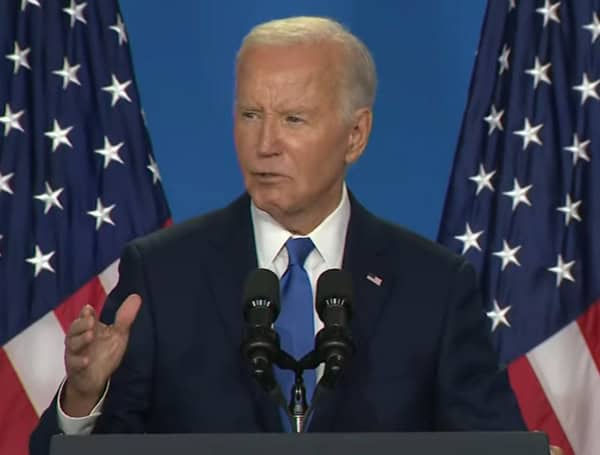The Biden-Harris administration announced a multi-billion dollar loan for electric vehicle (EV) maker Rivian Monday as the company continues to hemorrhage cash.
Rivian lost $1.1 billion and saw its revenue fall nearly $500 million in the third quarter of 2024 as a slackening of consumer demand for EVs hampered the industry’s growth. Now, the U.S. Department of Energy (DOE) has agreed to a conditional commitment to loan the automaker roughly $6.6 billion to help finance the construction of its manufacturing facility in Georgia, according to a press release from the DOE’s Loan Programs Office (LPO).
READ: Scott Jennings Takes On CNN Panelists Petrified By Thought Of Musk Buying MSNBC
“This loan will help create thousands of new American jobs and further strengthen U.S. leadership in EV manufacturing and technology,” RJ Scaringe, Rivian founder and CEO, wrote in a press release Monday. “A robust ecosystem of U.S. companies developing and manufacturing EVs is critical for the U.S. to maintain its long-term leadership in transportation.”
The Georgia factory will augment Rivian’s factory in Normal, Illinois, and will produce sport utility vehicles that sell for roughly $45,000, significantly less than the company’s current fleet of consumer vehicles which start at around $70,000.
“This loan would enable Rivian to more aggressively scale our U.S. manufacturing footprint for our competitively priced R2 and R3 vehicles that emphasize both capability and affordability,” Scaringe said in the release.
The financing agreement is part of outgoing President Joe Biden’s Investing in America agenda, which has deployed nearly $700 billion in taxpayer dollars to infrastructure, semiconductor and green energy projects. Many of the White House subsidies have gone to the EV industry specifically, including a $7,500 federal tax credit for certain EV purchases and $12 billion in taxpayer funds for car manufacturers to retrofit their plants for EV production.
READ: FBI Captures Most Wanted Terrorist Daniel Andreas San Diego
Despite the subsidies, the EV industry has seen a slackening of consumer demand, with sales growing just 31% in the first half of 2024 — far less than the 71% increase in the first half of 2022. Meanwhile, a June poll from The Associated Press-NORC Center for Public Affairs Research and the University of Chicago’s Energy Policy Institute found 46% of respondents were unlikely or very unlikely to purchase an EV compared with just 21% of respondents who said they were “very” or “extremely” likely to make the change.
“Even after throwing money at EVs hand over fist, basically paying people tax dollars to drive these cars off the lots, you have a dire spiral of (1) not enough demand to support the number of cars being produced, and (2) the people you paid to buy them now wanting to go back to what they had before,” O.H. Skinner, executive director of the Alliance for Consumers and the former solicitor general of Arizona, previously told the DCNF.
Please make a small donation to the Tampa Free Press to help sustain independent journalism. Your contribution enables us to continue delivering high-quality, local, and national news coverage.
Android Users: Download our free app to stay up-to-date on the latest news.
Connect with us: Follow the Tampa Free Press on Facebook and Twitter for breaking news and updates.
Sign up: Subscribe to our free newsletter for a curated selection of top stories delivered straight to your inbox.

First published by the Daily Caller News Foundation.



